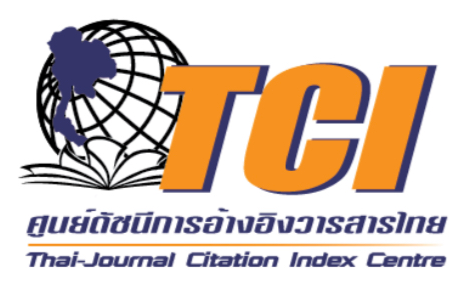Electronic Voting Law: A Case Study of Election of Member of The House of Representatives
DOI:
https://doi.org/10.14456/mfulj.2025.13Keywords:
Election Law, Electronic Voting, Election of Members of the House of RepresentativesAbstract
The purpose of this study is to examine international guidelines for legislating electronic voting systems, based on recommendations from democratic organizations. It also aims to study the election laws for electronic voting in various countries, including the United States (Florida), India, Australia (Australian Capital Territory), and Estonia, and to propose legal framework for electronic voting for drafting electronic voting laws in Thailand.
The study found that the legal framework for electronic voting should include the following key components: recognition of the management of electronic voting systems, assurance of the core principles of democratic elections, the type of electronic voting system used, definitions of terms related to electronic voting, testing and certification of electronic voting machines, Voter Verifiable Paper Audit Trails (VVPAT), procedures for voting and counting with electronic systems, security measures for electronic voting, election result verification, objections and appeals regarding election results, recounts, data retention of votes, penalties for violations of electronic voting regulations, stakeholder access, and the responsibility of vendors providing election equipment.
The study recommendation is to amend the Organic Act on the Election of Members of the House of Representatives B.E. 2561 by adding Chapter 5.1 Electronic Voting and Counting.
Downloads
References
กรมส่งเสริมการค้าระหว่างประเทศ, เลือกตั้งอินเดีย Lok Sabha Elections – 2024 [ออนไลน์], แหล่งที่มา: https://www.ditp.go.th/post/171543
เกรียงไกร เจริญธนาวัฒน์, หลักพื้นฐานกฎหมายมหาชน, พิมพ์ครั้งที่ 7, (กรุงเทพมหานคร: สำนักพิมพ์วิญญูชน, 2564).
เข็มทอง ต้นสกุลรุ่งเรือง, ปัญหาการบังคับใช้พระราชบัญญัติประกอบรัฐธรรมนูญว่าด้วยพรรคการเมือง พ.ศ. 2560 : ศึกษากรณีการยุบพรรคการเมืองอันเนื่องมาจากการกระทำความผิด, พิมพ์ครั้งที่ 1 (กรุงเทพมหานคร: สถาบันพระปกเกล้า, 2565).
ฐากูร ศิริยุทธ์วัฒนา, กฎหมายรัฐธรรมนูญ : หลักพื้นฐานแห่งกฎหมายรัฐธรรมนูญและระบอบประชาธิปไตย, พิมพ์ครั้งที่ 7, (กรุงเทพมหานคร: สำนักพิมพ์วิญญูชน, 2566).
ณรงค์เดช สรุโฆษิต, สิทธิเลือกตั้ง (Right of Vote), เอกสารประกอบการเรียนวิชากฎหมายการเลือกตั้งและรัฐสภาขั้นสูง หลักสูตรนิติศาสตรมหาบัณฑิต จุฬาลงกรณ์มหาวิทยาลัย, 2566.
ดำริห์ บูรณะนนท์, กฎหมายประกอบรัฐธรรมนูญ กฎหมายเลือกตั้ง กฎหมายพรรคการเมือง, (กรุงเทพมหานคร: สำนักพิมพ์นิติธรรม, 2539).
ไทยพีบีเอส, กกต.-คณะรัฐศาสตร์ จุฬาฯ ถอดบทเรียนเลือกตั้ง 2566 [ออนไลน์], แหล่งที่มา: https://www.thaipbs.or.th/news/content/331828
ไทยพับลิก้า, ไอลอว์ชี้ 6 ปัญหาเลือกตั้งล่วงหน้า 7 พ.ค. “จ่าหน้าซองผิด-บัตรเขย่ง” [ออนไลน์], แหล่งที่มา: https://thaipublica.org/2023/05/ilaw-vote62-pre-election-problem/
บวรศักดิ์ อุวรรณโณ และถวิลวดี บุรีกุล, หนังสือชุดความรู้ด้านการจัดการความขัดแย้งด้วยสันติวิธี เล่มที่ 3 ประชาธิปไตยแบบมีส่วนร่วม, พิมพ์ครั้งที่ 2, (กรุงเทพมหานคร: โรงพิมพ์แห่งจุฬาลงกรณ์มหาวิทยาลัย, 2549).
ปริญญา เทวานฤมิตรกุล, ระบบเลือกตั้งสมาชิกสภาผู้แทนราษฎร : พัฒนาการ ปัญหา และทางเลือกประเทศไทย, (กรุงเทพมหานคร: สำนักพิมพ์วิญญูชน, 2567).
วรเจตน์ ภาคีรัตน์, คำสอนว่าด้วยรัฐและหลักกฎหมายมหาชน, พิมพ์ครั้งที่ 3, (กรุงเทพมหานคร: สำนักพิมพ์อ่านกฎหมาย, 2565).
วิชุดา สาธิตพร, ประชาธิปไตยผ่านตัวแทน (representative democracy) [ออนไลน์], แหล่งที่มา: http://wiki.kpi.ac.th/index.php?title_(representative_democracy)
สิริพรรณ นกสวน สวัสดี, ระบบเลือกตั้งเปรียบเทียบ, (กรุงเทพมหานคร: สำนักพิมพ์สยามปริทัศน์, 2561).
สำนักงานคณะกรรมการการเลือกตั้ง, ข้อมูลสถิติการเลือกตั้งสมาชิกสภาผู้แทนราษฎร พ.ศ. 2566, (กรุงเทพมหานคร: ห้างหุ้นส่วนจำกัด สหายบล็อกและการพิมพ์, 2566).
สำนักงานคณะกรรมการการเลือกตั้ง, คู่มือการสรรหาผู้สมัครรับเลือกตั้งสมาชิกสภาผู้แทนราษฎร การเลือกตั้งขั้นต้น (Primary Vote) [ออนไลน์], แหล่งที่มา: https://www.ect.go.th/web-upload/migrate/download/article/article_20180423114604.pdf
สำนักงานคณะกรรมการการเลือกตั้ง, เครื่องลงคะแนนเลือกตั้ง.
สำนักงานคณะกรรมการการเลือกตั้ง, อำนาจหน้าที่ของ กกต. [ออนไลน์], แหล่งที่มา: https://www.ect.go.th/ect_th/th/ect-roles
อเล็กซ์ วูล์ฟ, ระบอบการปกครอง : ประชาธิปไตย, แปลโดย โคทม อารียา และ แก้วฤทธรา วิริยะวัฒนา (กรุงเทพมหานคร: สำนักพิมพ์ปาเจรา, 2555).
เอกบุญ วงศ์สวัสดิ์กุล, การเลือกตั้ง : ดัชนีชี้วัดความเป็นประชาธิปไตย [ออนไลน์], แหล่งที่มา:https://www.constitutionalcourt.or.th/occ_web/ewt_dl_link.php?nid=1353
แอดมิน4, We Watch รายงานปัญหาที่พบในการเลือกตั้ง 2566 ชี้ กกต. ควรรายงานผลเร็ว มีประสิทธิภาพมากกว่านี้ [ออนไลน์], แหล่งที่มา: https://www.thereporters.co/tw-politics/1605231328/
ACE the Electoral Knowledge Network, Historical Overview [Online], Source: https://aceproject.org/ace-en/focus/e-voting/historical-overview
ACE the Electoral Knowledge Network, Historical Overview [Online], Source: https://aceproject.org/ace-en/focus/e-voting/what-is-e-voting/mobile_browsing/onePag
ACE The Electoral Knowledge Network, Introducting E-Voting – Considerations [Online], Source: https://aceproject.org/ace-en/focus/e-voting/introducing-electronic-voting-considerations/national-legislative-framework
ACE The Electoral Knowledge Network, Opportunities, Risks and Challenges of E-Voting [Online], Source: https://aceproject.org/ace-en/focus/e-voting/default
ACE The Electoral Knowledge Network, Types of E-Voting [Online], Source: https://aceproject.org/ace-en/focus/e-voting/types-of-e-voting
CreditMantri, All You Need to Know About Evm, [Online], Source: https://www.creditmantri.com/all-you-need-to-know-about-evm/
Grzegorz Kuca, Secret Ballot, Encyclopedia of Oxford Constitutional Law (July 2019).
International IDEA, Introducing Electronic Voting: Essential Considerations, Stockholm: International IDEA. (Stockholm: International IDEA, 2011).
International Institute for Democracy and Electoral Assistance, Is E-Voting Currently Used in Any Elections with EMB Participation? [Online], Source: https://www.idea.int/data-tools/data/question?question_id=9348&database_theme=327
John Hardin Young, International Election Principles: Democracy & The Rule of Law, 1st ed (Illinois: ABA publishing, 2009).
Kerstin Goos, Bernd Beckert, Ralf Lindner, Electronic, Internet-Based Voting, in Electronic Democracy in Europe Prospects and Challenges of E-Publics, E-Participation and E-Voting, Ralf Lindner, Georg Aichholzer, Leonhard Hennen (Switzerland: Springer Science+Business Media, 2016).
Lilian Mitrou, Dimitris Gritzalis, Sokratis Katsikas, Gerald Quirchmayr, E-VOTING: Constitutional and Legal requirements and their technical reflection, in Secure Election Voting, Dimitris A. Gritzalis (New York: Springer Science+Business Media, 2003).
Marek Domin, Universal Suffrage, Encyclopedia of Oxford Constitutional Law (June 2022).
Miguel Ángel Presno Linera, Right to Vote, Encyclopedia of Oxford Constitutional Law (July 2021).
National Democratic Institute, Legal and Procedural Framework [Online], Source: https://www.ndi.org/e-voting-guide/legal-and-procedural-framework
Samyak Sibasish and Vasujith Ram, The VVPAT Ruling: Worth Celebrating? [Online],
Source: https://www.livelaw.in/the-vvpat-ruling-worth-celebrating/
The Carter Center, Handbook on Observing Electronic Voting, 2 ed. (Atlanta: 2012).
The OSCE Office for Democratic Institutions and Human Rights (ODIHR), Handbook for The Observation of New Voting Technologies, (Poland: The OSCE, 2013).
The World Factbook, Estonia [Online], Source: https://www.cia.gov/the-world-factbook/countries/estonia/#government
Downloads
Published
How to Cite
Issue
Section
License
Copyright (c) 2025 Mae Fah Luang University Law Journal

This work is licensed under a Creative Commons Attribution-NonCommercial-NoDerivatives 4.0 International License.






